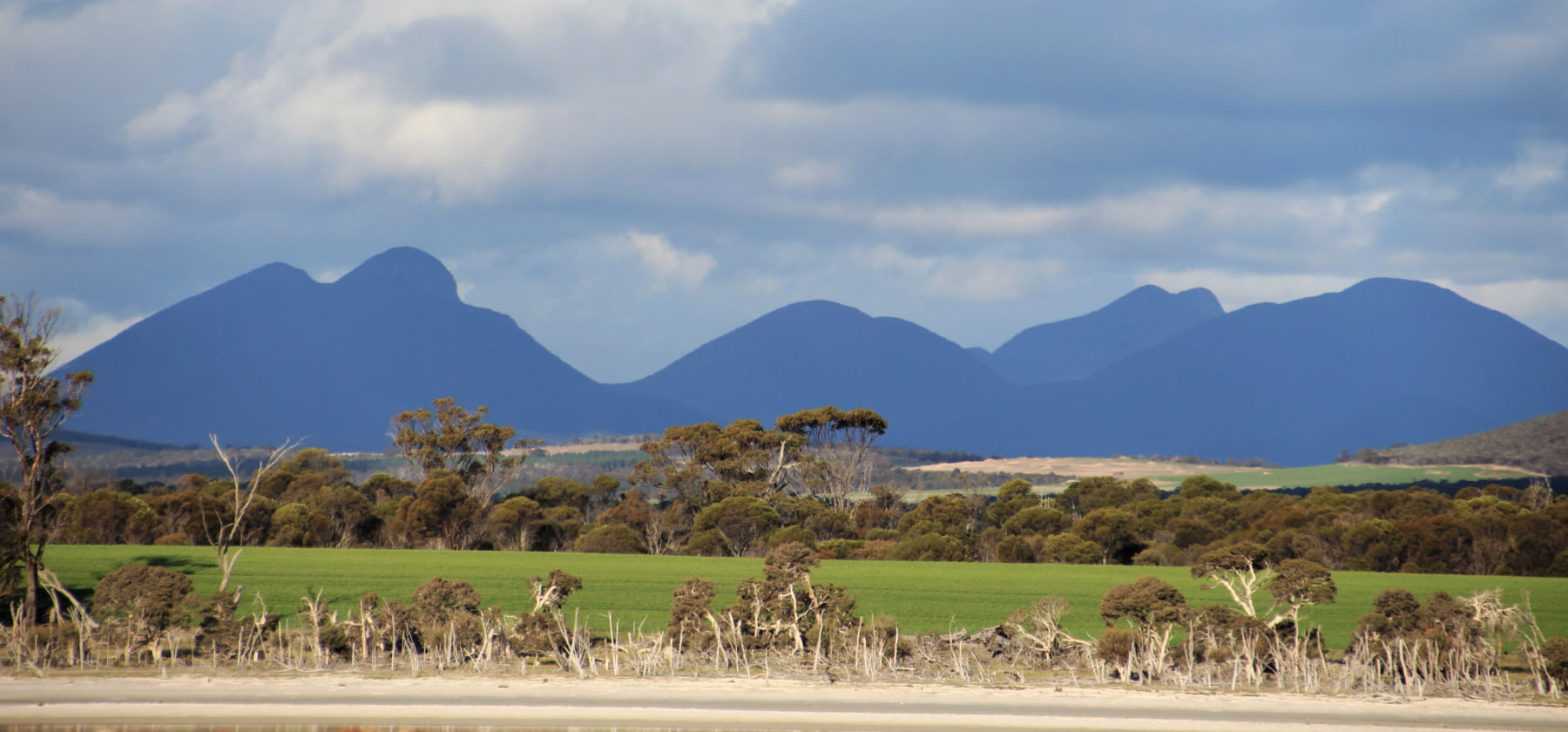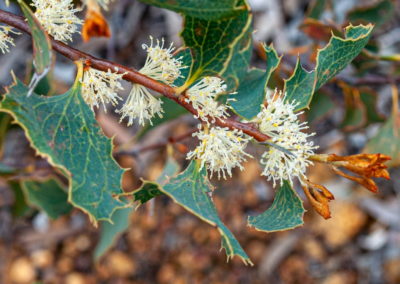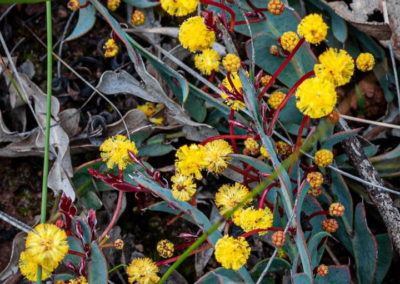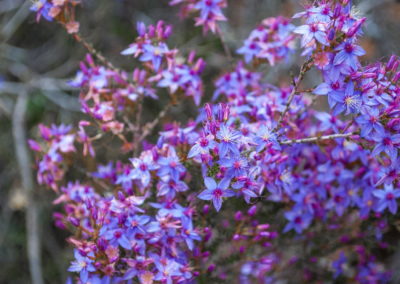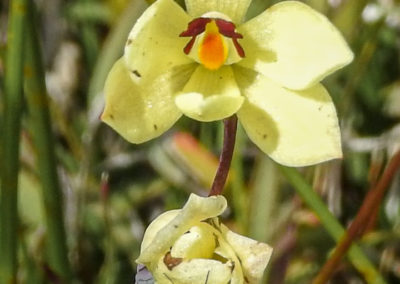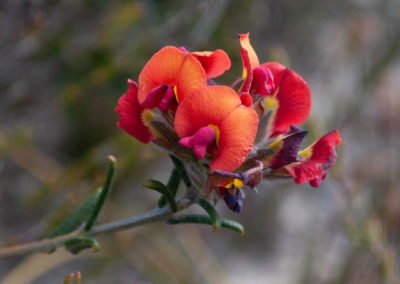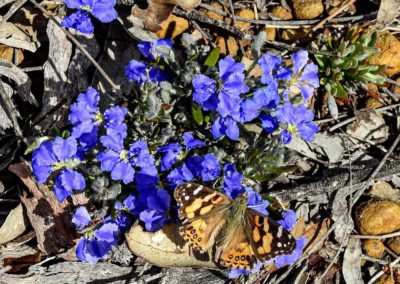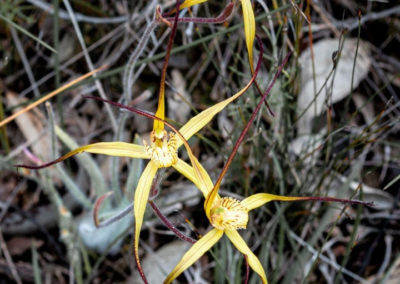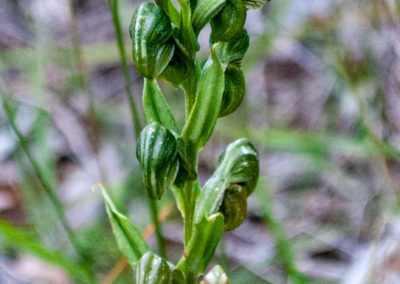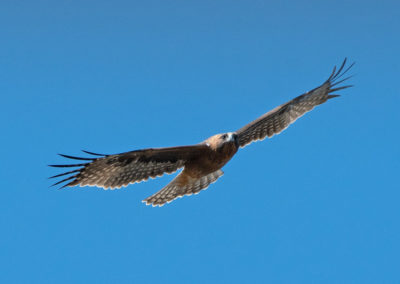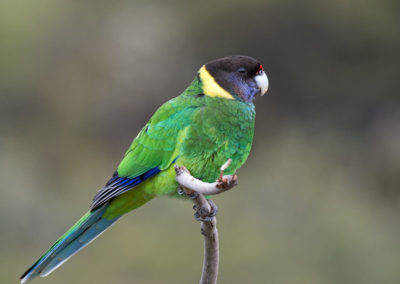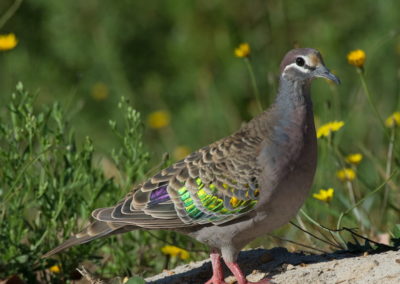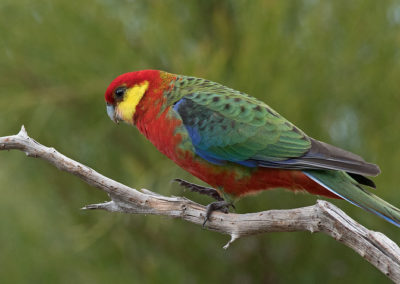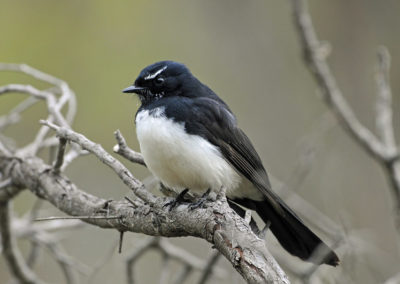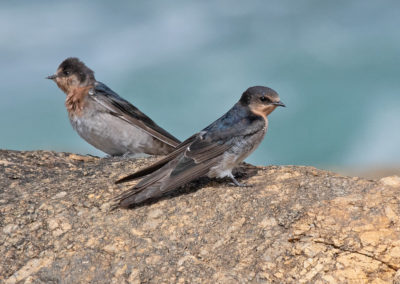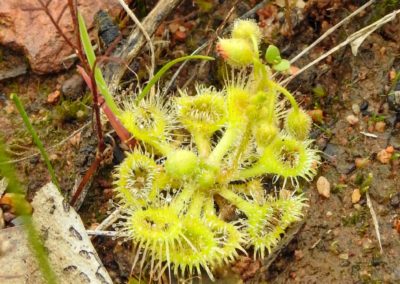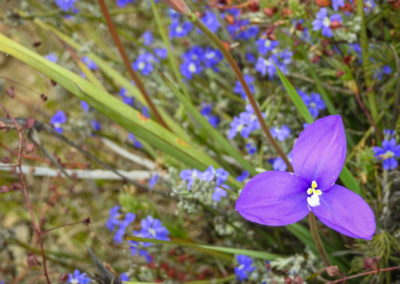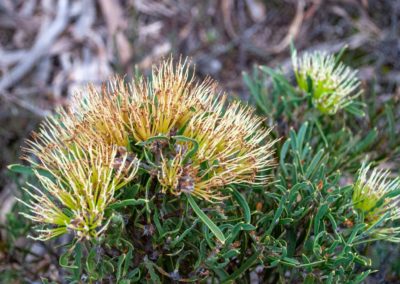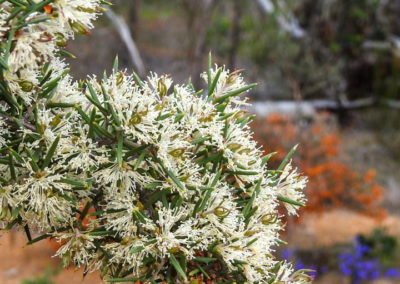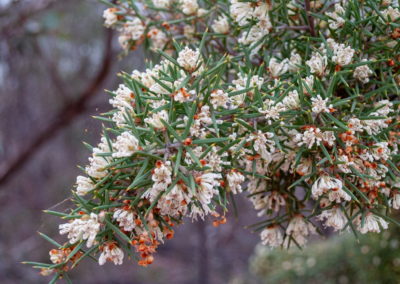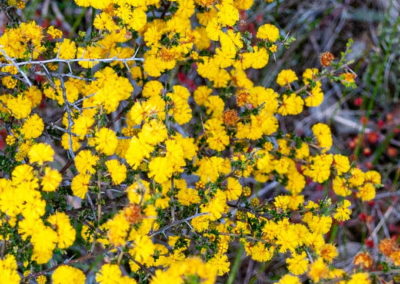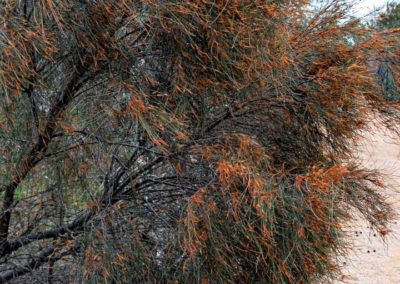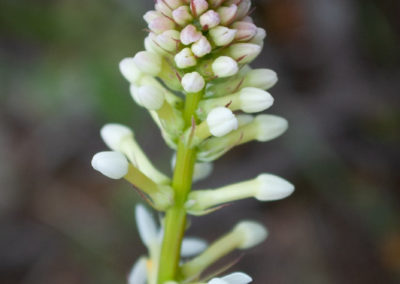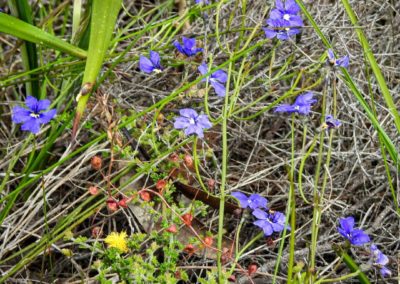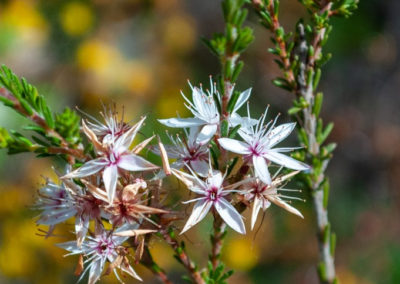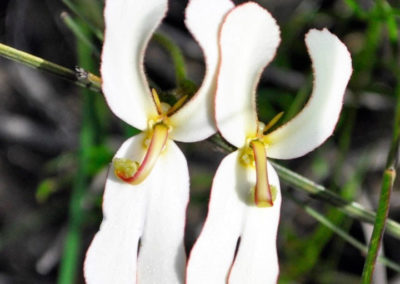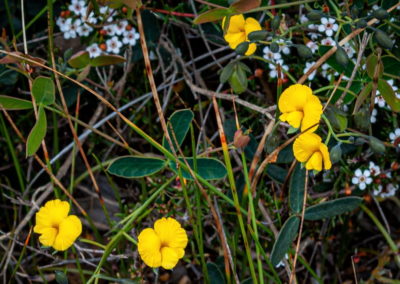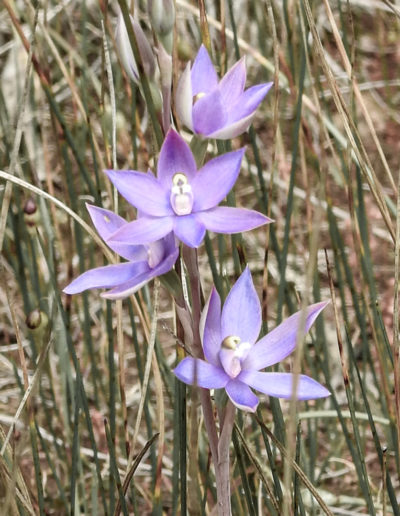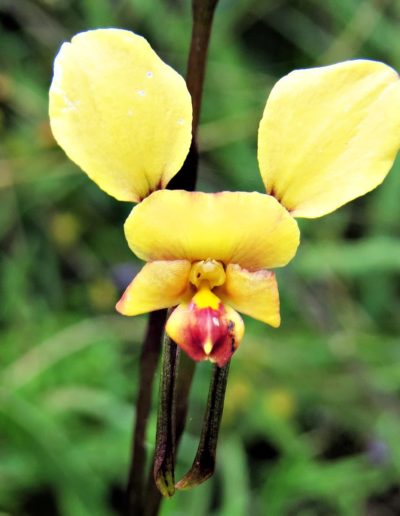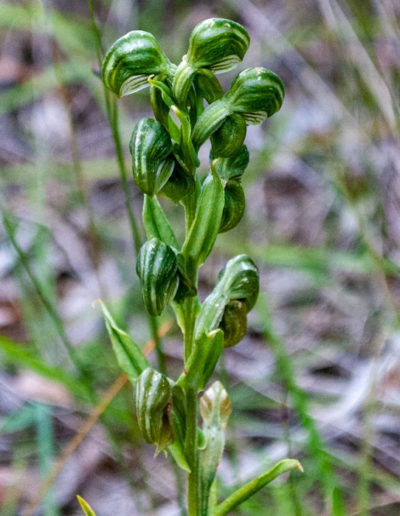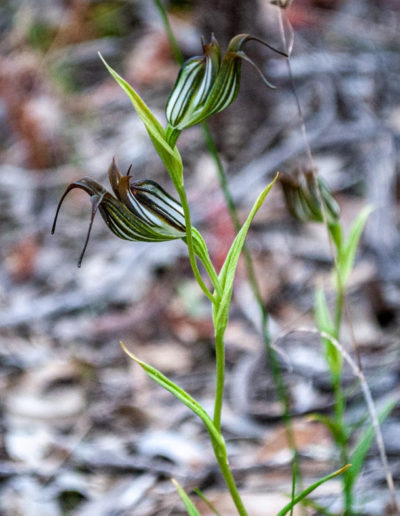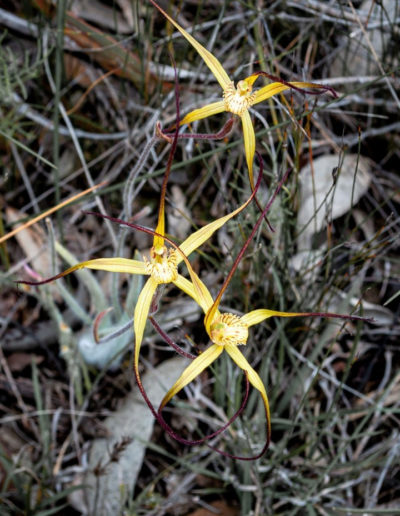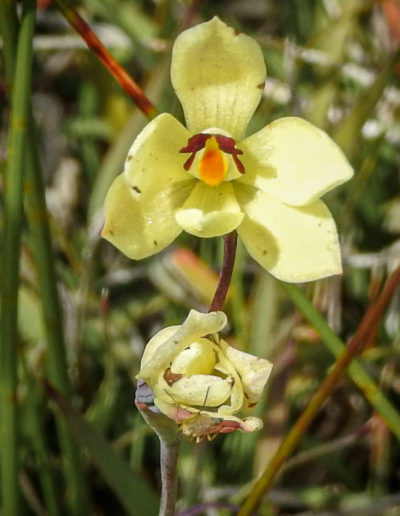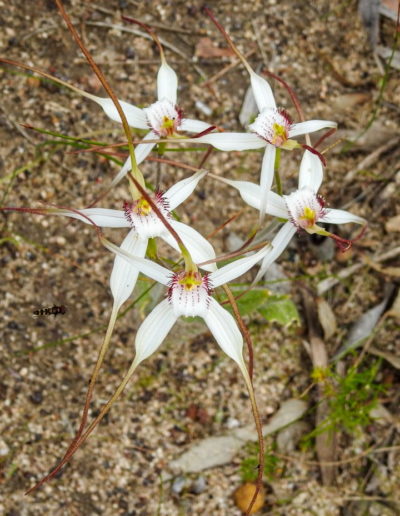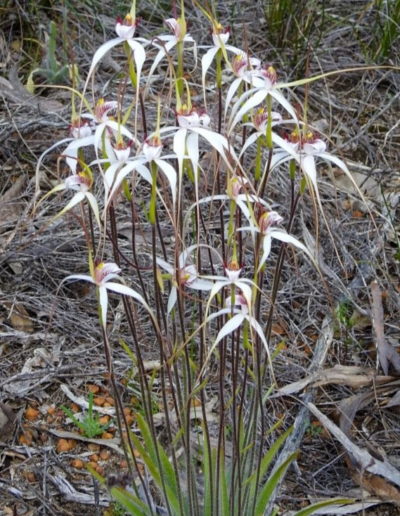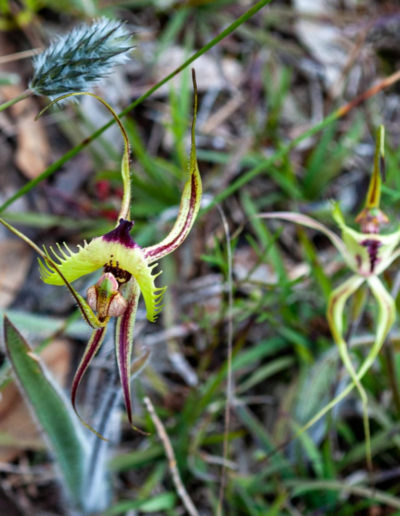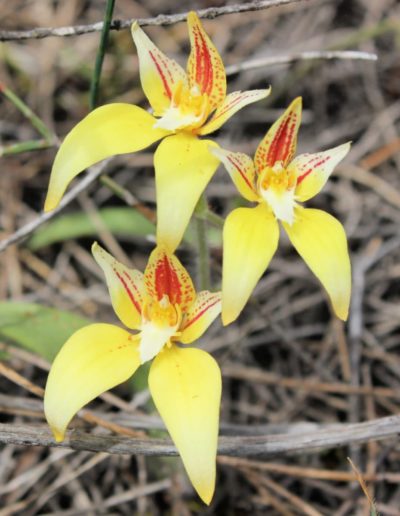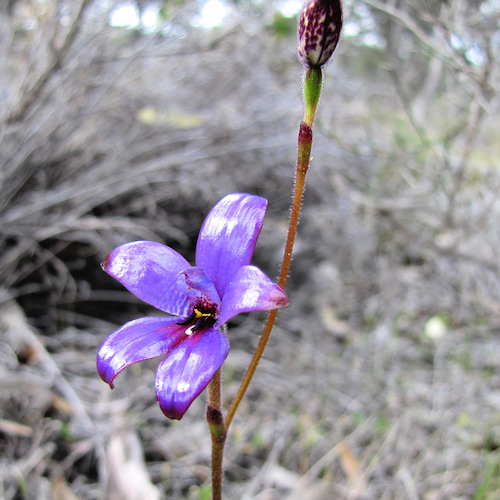Overview
Boot Rock is a local landmark and believed to have been of significance to the local Noongar people.
The granite rock shaped like a boot is a surface expression of the immense and ancient Yilgarn Block.
Boot Rock Reserve is on the southern edge of Broomehill village, and is a haven for wildflowers, and orchids in particular. Over 130 species of native vegetation have been identified in this area.
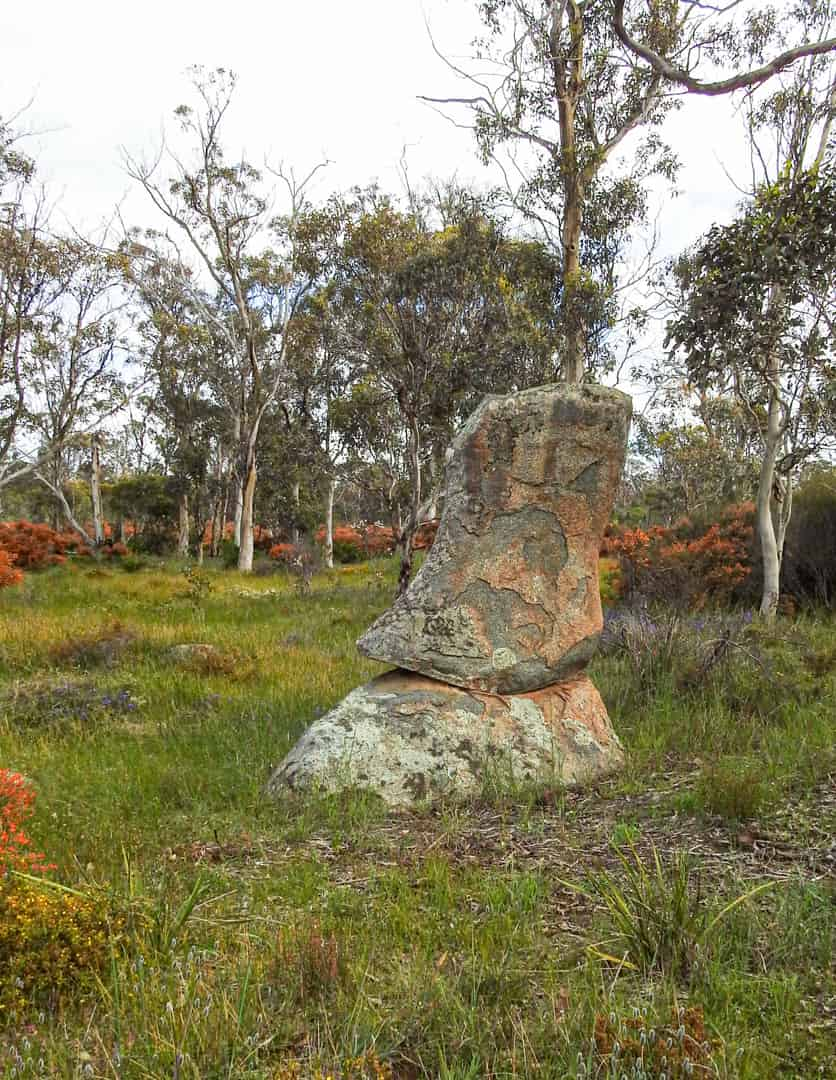
Boot Rock
Image: Jo Kempin
Story of the place
Deep time history
The Broomehill area is part of a zone of ‘salt lakes and sandplains’.
But there is also ancient granite, which is sometimes visible in formations like Boot Rock, or other domes and flat outcrops. These expressions of the Yilgarn Block have been exposed by the erosion of the sandplain and gneisses over many millions of years. Other parts of the landscape are gently undulating, with hilltops capped with remnants of laterite (ironstone gravel).
Ecological History
The Broomehill-Tambellup area was extensively cleared for agriculture in the early 20th century.
Now only 7% of the original vegetation remains within the Shire.
In such a cleared landscape, all nature reserves are vitally important for conservation. While this reserve is only 22.6 hectares, it is actually reasonably large for the area.
Ideally, conservation reserves would be much larger, and have more connections between the ‘islands of vegetation‘ however, Boot Rock Reserve has a good suite of the original vegetation of this region, and has some important habitat for birds and other fauna.
The reserve has been used in various ways over the years – part of it mined for gravel, the western side was once a golf course, and there was a trotting training track there too.
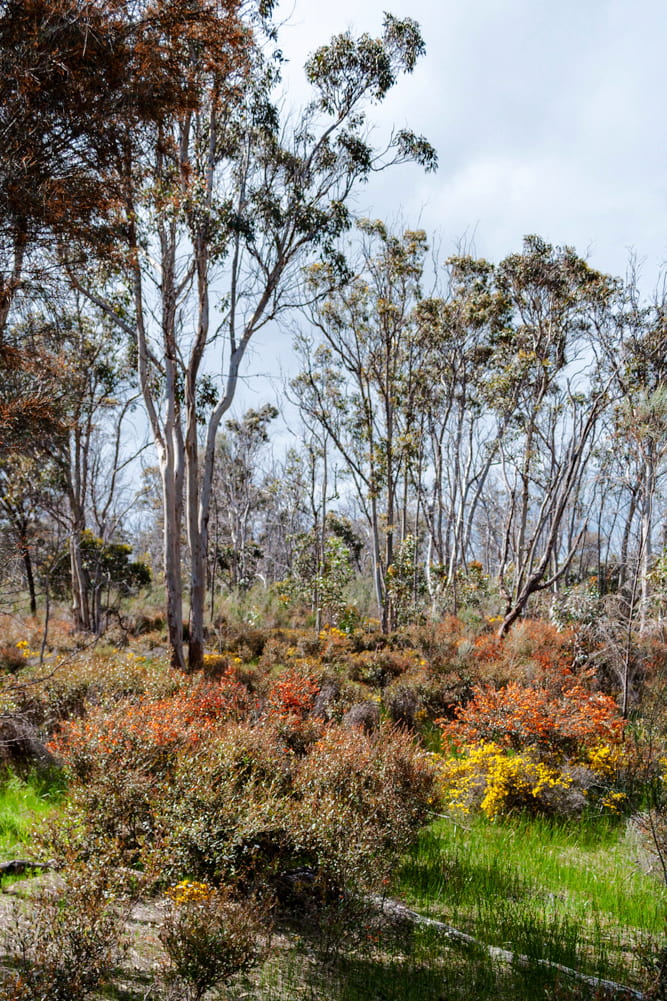
Image: Jo Kempin
About two-thirds of the reserve burnt in November 2009 after a fire was started by flying sparks from a passing truck. It was the first time in many decades that the reserve had burnt, and in the following year a range of orchids (such as rabbit orchids) were seen for the first time in many years.
Settler History
Broomehill township dates from 1889, when the Great Southern Railway was constructed. Before then, the main settlement was at Eticup to the west.
From 1893, Broomehill was the starting point for the Holland Track to the Goldfields – the main route from the entry port of Albany until 1908 when the railway was extended from Northam to Coolgardie and prospective miners could arrive via Fremantle.
Visit Holland Rocks to the north-east – another stop on the Holland Track.
Woodland
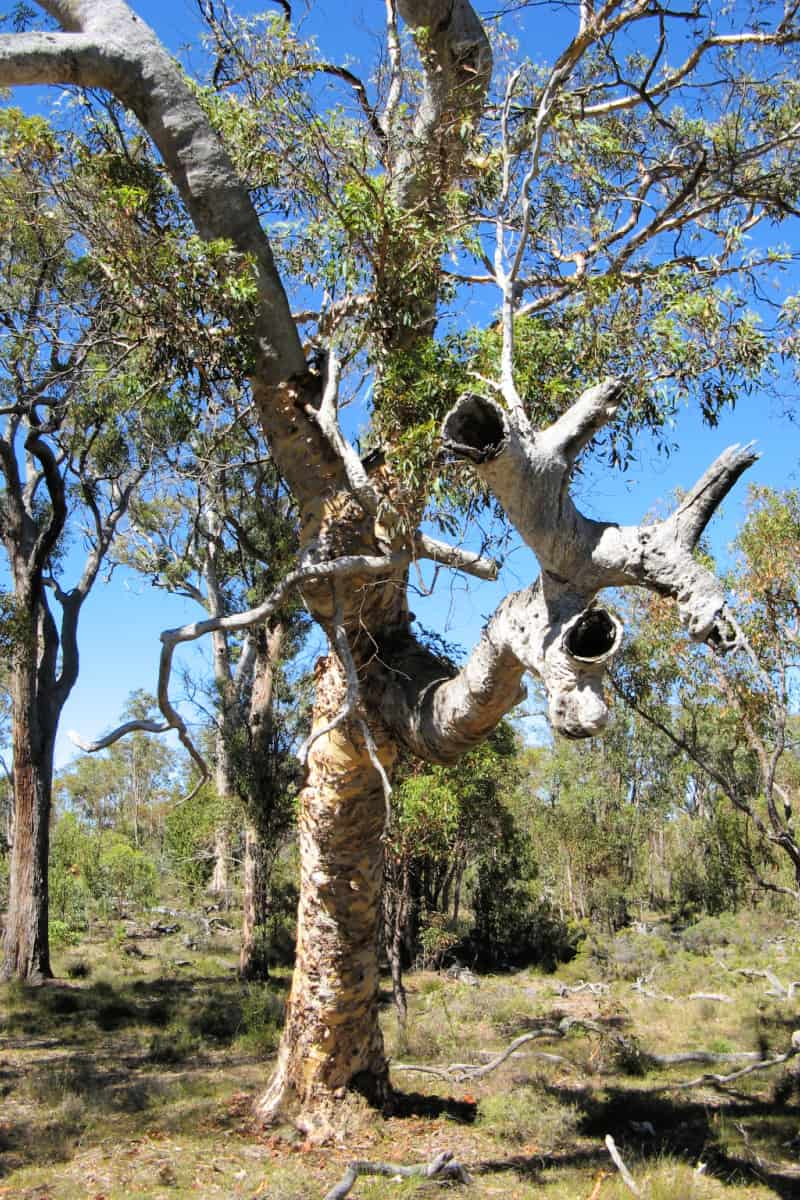
Wandoo with nesting hollows
Image: Jesse Brampton
The reserve is dominated by wandoo woodland with areas of Brown mallet throughout.
There are also rock sheoak groves and a good grove of healthy Quandongs.
In December, look out for the solitary Nyutsia Floribunda.
The mature wandoo trees in Boot Rock reserve develop important hollows for nesting sites.
It takes hundreds of years for wandoo trees to become large enough to create suitable hollows for birds and animals, making reserves like this, containing mature trees, crucially important.
Animal life
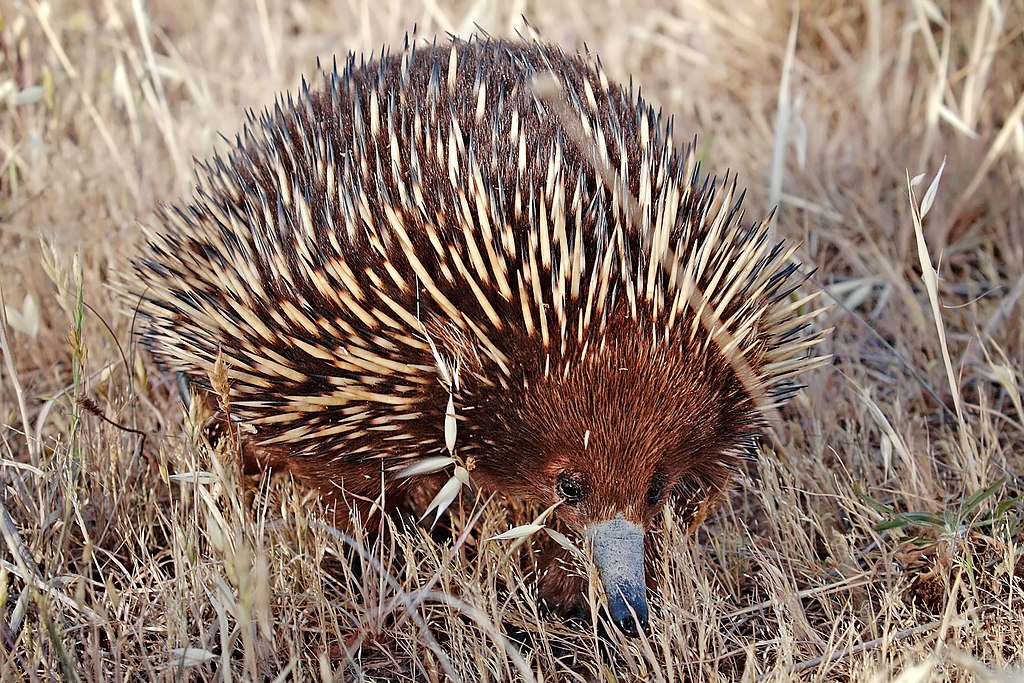
Image: Fir0002, GFDL 1.2
Signs of echidnas have been discovered in Boot Rock Reserve. Other common animals in this area of the grey kangaroo and four species of bat.
Endangered species in the Broomehill area include the brush-tailed wallaby, red-tailed phascogale, honey possum, brush-tailed possum, two species of dunnarts, brush wallaby and chuditch.
See & Do
Walks
Currently there are no formalised walk trails through Boot Rock Reserve.
However, there are tracks running through the reserve that make it easy to walk through the open woodland.
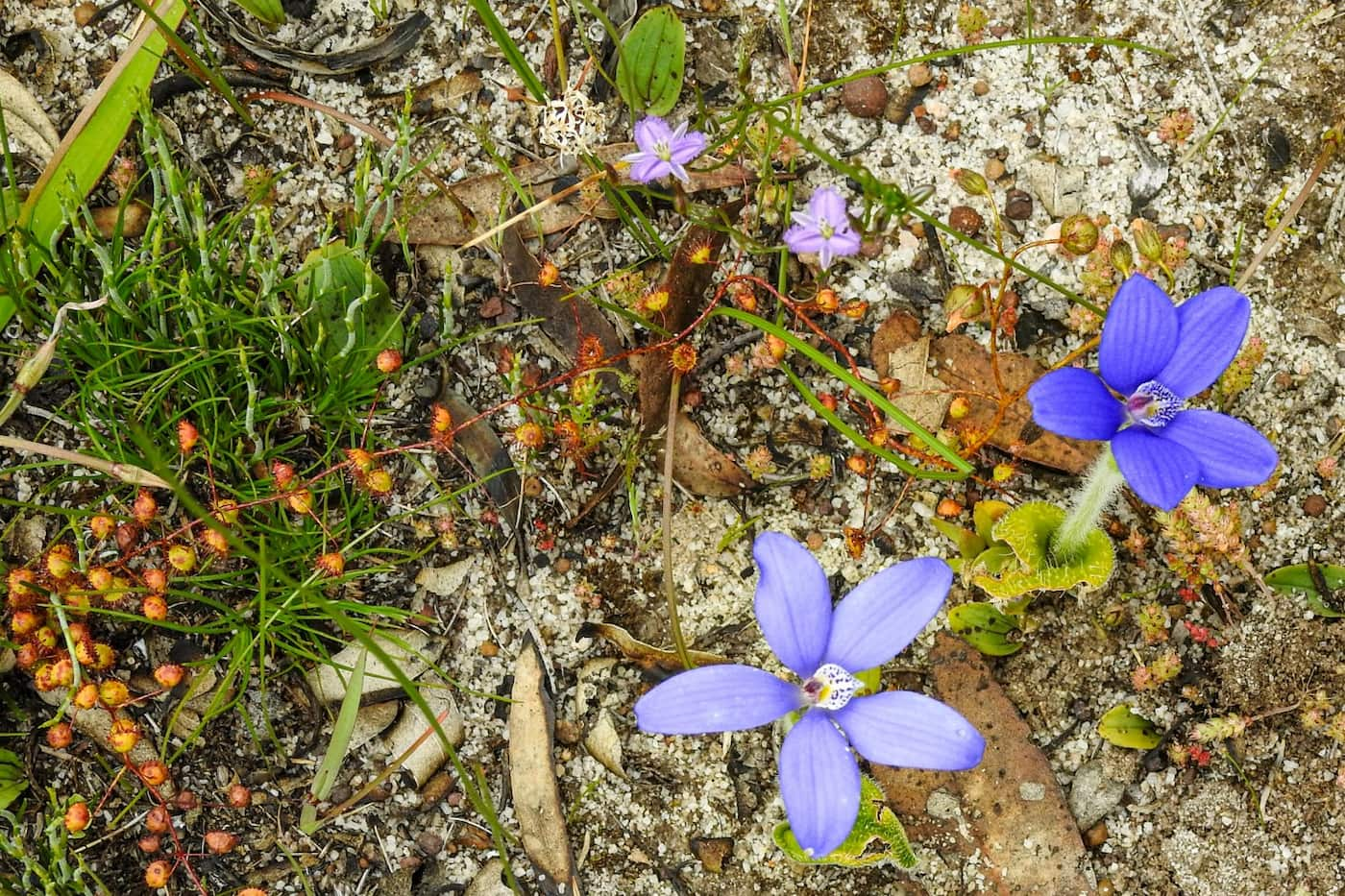
Don’t forget to look closely!
Image: Jo Kempin
Wildflowers
130 plant species have been identified in Boot Rock Reserve.
Orchids
Boot Rock Reserve comes alive with orchids in spring. The orchids you are likely to see include:
Small-flowered Donkey Orchid (Diuris porrifolia)
Small-flowered Donkey Orchid (Diuris porrifolia). Image: Anne Rick
Nearby
There are many other sites to visit nearby including:
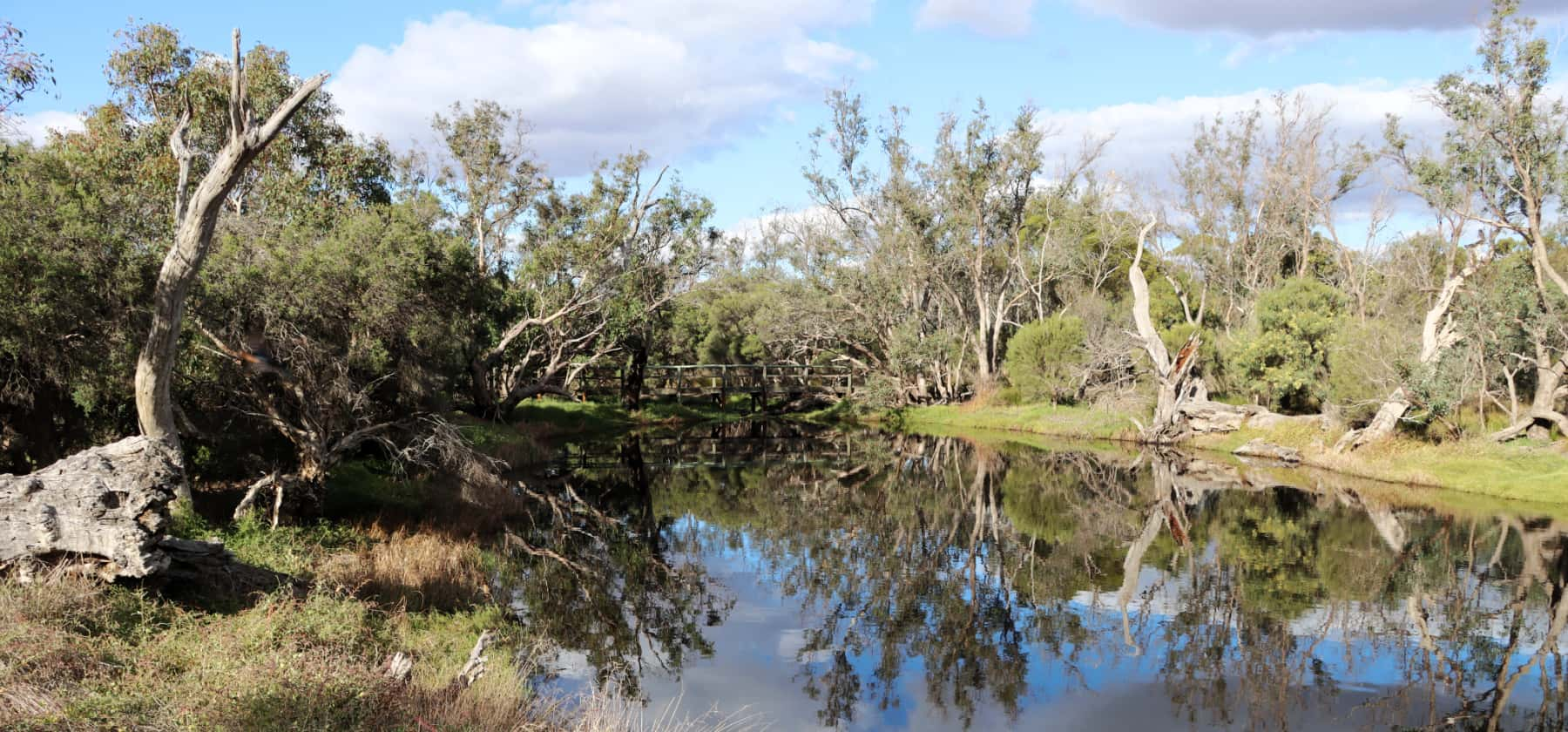
Twonkwillingup - Police Pools Reserve
Twonkwillingup was an important meeting place for Noongar people and is now a chain of wetlands - a haven for birds.
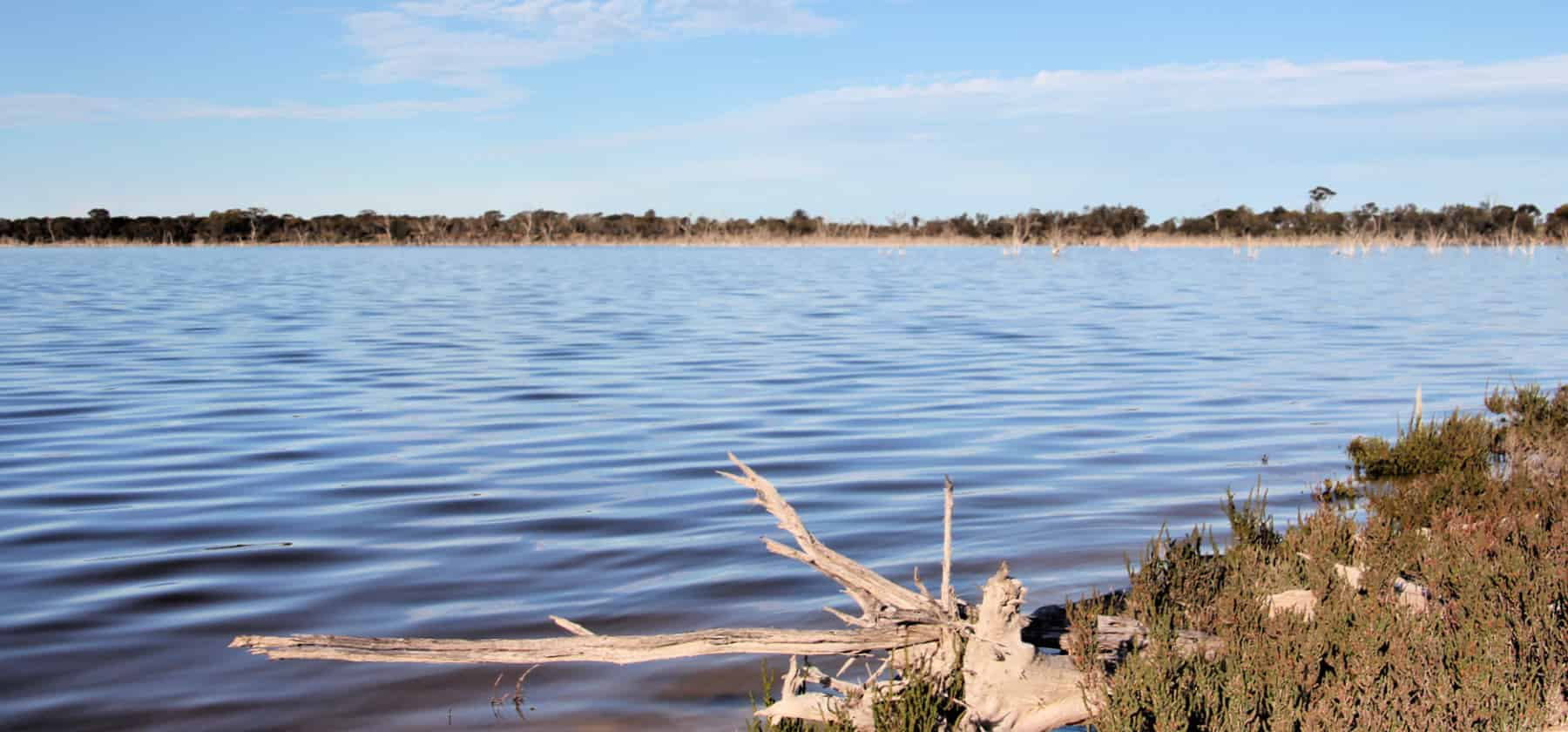
Lake Ewlyamartup
Located 18km east of Katanning on the Nyabing Rd is a treasured recreation site for the local community, as well as a haven for birds.
Practical Information
Directions
Access to Boot Rock Reserve is from Great Southern Highway, just to the south of Broomehill village. Turn right onto Jetsam St.
[Note: the reserve is called John Holland Memorial Park on Google Maps.]
Facilities
There are no facilities here, however the village of Broomehill is very close by.
When to go
Djilba and Kambarang – from July to the end of November – is the best time to see the most flowers and orchids.
Where to eat and stay
See the suggestions from our friends at Great Southern Treasures:

